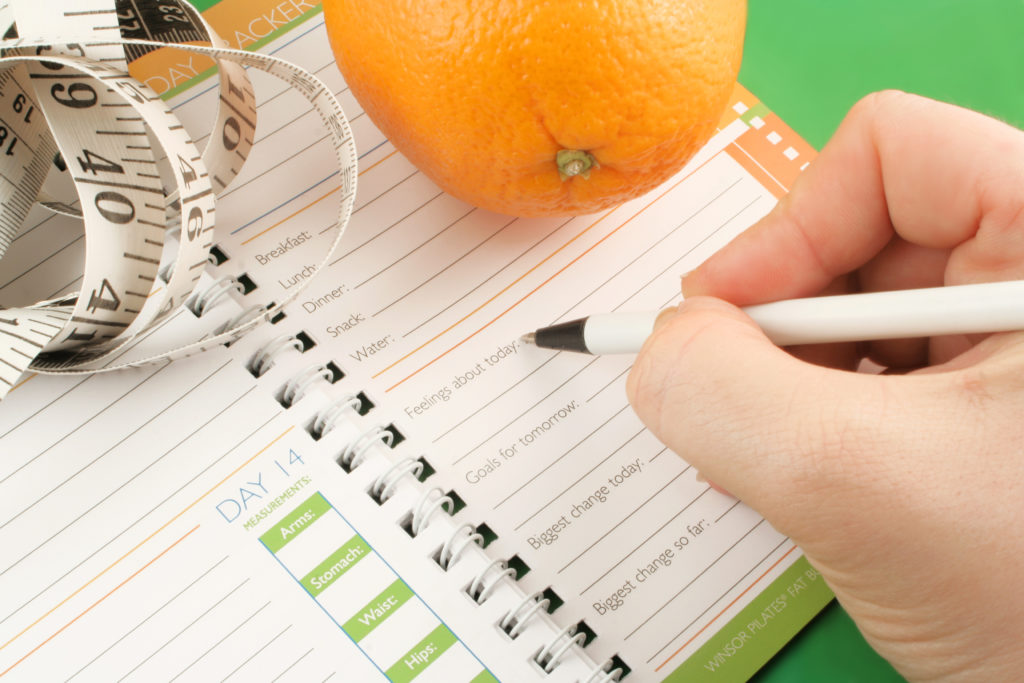ENTER YOUR EMAIL ADDRESS TO UNLOCK
15% OFF
on your first order
Some exclusions apply.
You Need a Budget
“Yeah, I know counting calories is important, but what about protein, carbs, fats, saturated fats, meal timing, keto, paleo….”
Look, nutrition is complicated. In fact, you can make it just about as complicated as you want it to be. But is that your motivation? Did you have bariatric surgery to see how fancy you could make your diet? No!
You had bariatric surgery because you have a specific idea of what your life should look like. We’ll venture to assume it didn’t include analyzing the micronutrient content of every single leafy green in the produce section or obsessing over what time you should stop eating carbs or whatever unnecessarily complicated strategy is popular this week.
There ARE other important things that you should watch, but that can be handled later. Right now the focus is total calories, which is the absolute driver behind weight gain and weight loss alike.
Enter the Calorie Budget
No matter how clean your diet is, or how long you’ve been in Ketosis or how long you’ve been fasting, if your calories aren’t right you won’t lose weight.
This is where the Calorie Budget comes into play. Without even going into any detail I’m sure you can guess the general idea of the Calorie Budget.
At the fundamental level a budget can be defined as an estimate of income and expenditures for a set period of time. This sounds like a description of a personal financial budget, but it crosses over into weight loss, too.
- Income = Calories In
- Expenditures = Calories Out
Since a budget is designed to outline your finances by predetermining income and expenses, you can also predetermine the calories you consume (calories in) and you can assume the calories you expend (calories out).
For someone who intends to maintain their weight, they don’t want to gain any weight and they don’t want to lose any weight, their income has to match their expenses. In other words they have to eat the same amount of calories that they burned.
Here’s an example: If Sally’s body burns 1,700 calories throughout the day she has to consume roughly 1,700 calories in order to maintain her weight.
Sally’s calorie budget needs to be set at 1,700 calories for her to see the result she wants: Weight Maintenance.
If she eats more she’ll gain weight and if she eats less she’ll lose weight. At a very basic level, this is how it works…
Weight loss is a multi-faceted undertaking
“Calories in vs. Calories out” is basically right, but it completely ignores the other aspects of weight loss. Things like the psychology that goes on with dieting, the physical aspect like hunger, and the social roadblocks that a diet can impose.
These things are real, but they are outside the scope of this article. So, for now, we are boiling it down to a simple numbers game which is where everything starts:
Calories in vs. Calories out is a pretty unforgiving equation in weight loss. While no one thing can be solely responsible for weight loss, the one thing that’s responsible for plateaus or weight gain is almost always overeating over time. This includes unintentional overeating, too.
As a matter of fact, this article found that people are pretty bad at estimating the calories in food.
According to the research published in the British Medical Journal more than a quarter of people underestimated calorie content by at least 500 calories.
Underestimating by 500 calories! To put that number into perspective, a pound of fat is comprised of about 3,500 calories. Overeating by 500 calories per day for one week would (theoretically) result in an entire pound of gained fat.
This means that trying to lose weight by “eating clean” or “eating only healthy foods” isn’t going to work out for you.
It’s actually possible to gain weight on healthy food, not just junk. Remember that the purpose of this article isn’t about nutrients that keep the body healthy. That’s all important…
But for weight loss, your body doesn’t care if it’s getting 1,000 calories from grilled chicken or fried chicken. The effects on body composition are the same.
How to use the Goldilocks Principle to lose weight
Everyone has different calorie needs.
[box]
The big things that determine how many calories your body needs are:
- Genetics
- Gender
- Extracurricular Activity Level (exercise, sports..etc.)
- Work Activity Level (desk worker or manual labor)
- Age
- And more
[/box]
Introducing the Goldilocks Principle:
Just because everyone has unique and individual calorie needs that doesn’t mean that everyone isn’t capable of overeating and undereating alike
The dangers of overeating are pretty simple: you gain weight and your body fat will increase.
The dangers of undereating are malnutrition, losing weight too fast and loss of lean body mass to name a few
Just like Goldilocks and the Three Bears, you have to follow the calorie budget that’s just right for you and your goals and then establish it as your calorie budget.
One person may need a calorie budget of 1,200 calories to lose weight. Another person may need 2,500 calories to lose weight. The big picture is this: Weight loss will not happen if calories consumed are greater than calories burned over time.
So whatever your perfect number is will then become your calorie budget which IMMEDIATELY gives your food log context. Did you go over your calories, by how much? Were you under, by how much? Setting your own bar allows you to judge your own performance.
Setting a simple calorie goal is just the right place to start. Don’t worry about tracking protein, fat, saturated fat, carbs, sodium, sugars, sugar alcohols, blah blah blah….that will lead to burnout, confusion and analysis paralysis – and nothing is worse than doing nothing.
Human psychology says we are motivated by wins. So start by focusing only on one thing for now: your calorie budget. Get comfortable with that alone for the next couple of weeks and only then should you start to think about tracking the other things.
Remember, without the proper calorie goal, nothing else can influence your weight loss.
Action Steps
So what do you do now? You know that you need a calorie budget but what should that be? Like we said earlier, everyone is different and everyone has different needs, but according to the Academy of Nutrition and Dietetics a good starting point is 1,200 to 1,500 calories per day for women and 1,500 to 1,800 calories per day for men.
Next you need to set your calorie budget in your food tracker. If you don’t have one check out MyFitnessPal, LoseIt! Or Fat Secret. Get those apps on your phone and set up an account
And remember that for now you don’t do anything but set a calorie goal/budget.
For the next week don’t change any of your behavioral or eating habits, but do log your food. At the end of the week look back and see how you did with your natural eating habits compared to your calorie budget
This process gives you insight on what to do next. Knowledge is power and you can have all the power you need to reach your goal weight!
New here? Sign up and never miss a new article!
[gravityform id="11" title="false" description="false"]
What did you think?
Did you find this article? Share your thoughts or questions in the comments below – we want to hear from you!


